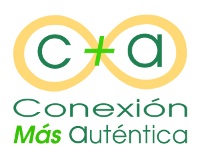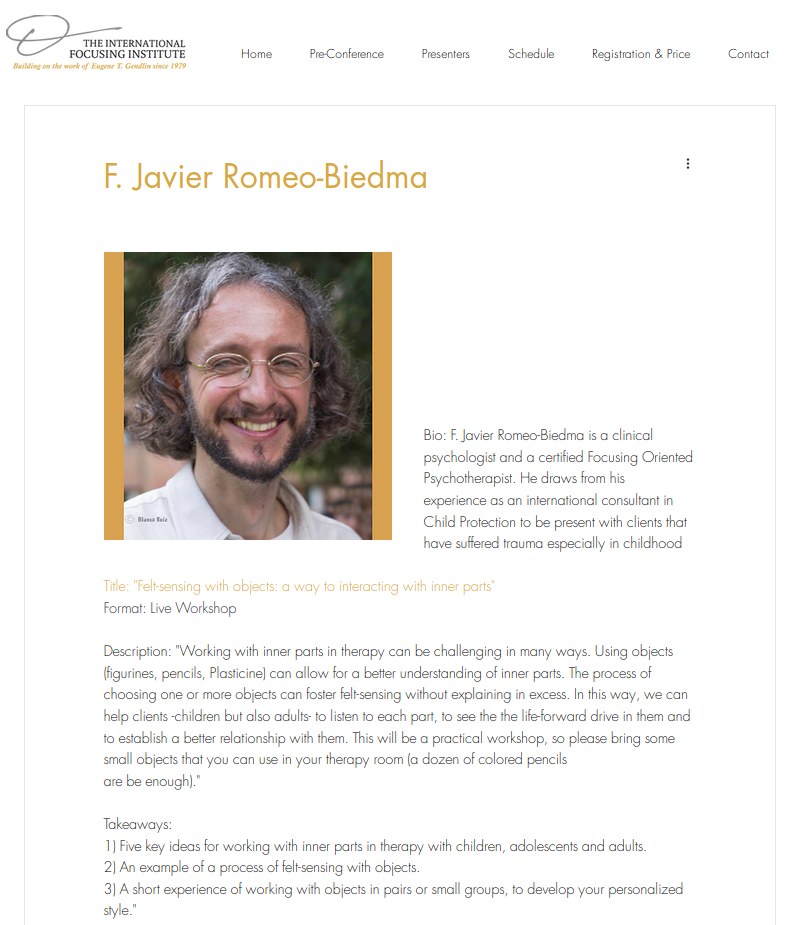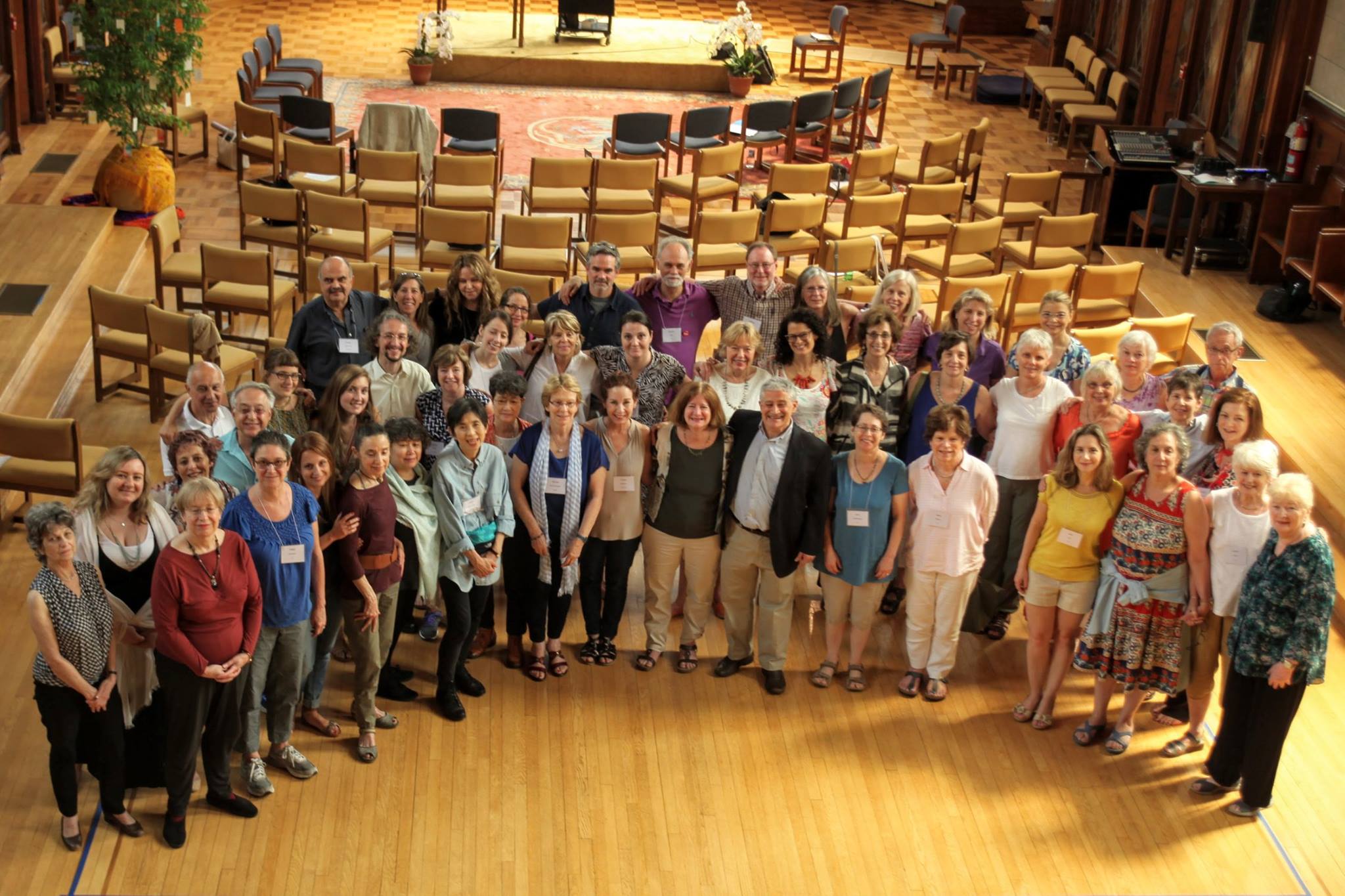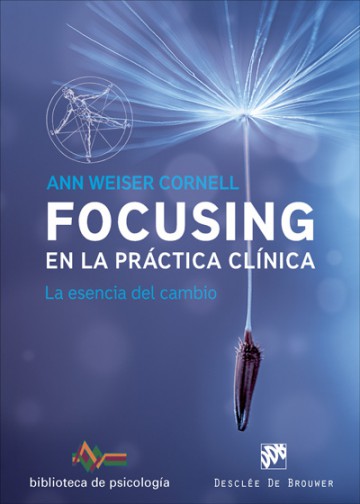Label: Therapy
Manual “See to Protect. Keys to understanding violence against children, girls and adolescents and to develop effective protection measures”, F. Javier Romeo and Pepa Horno for UNICEF Spain
3 May 2022.
Tags: Agenda actual, Education, CI Spirals, Training, My Classifieds, child protection, Psychotherapy, Therapy, Trauma
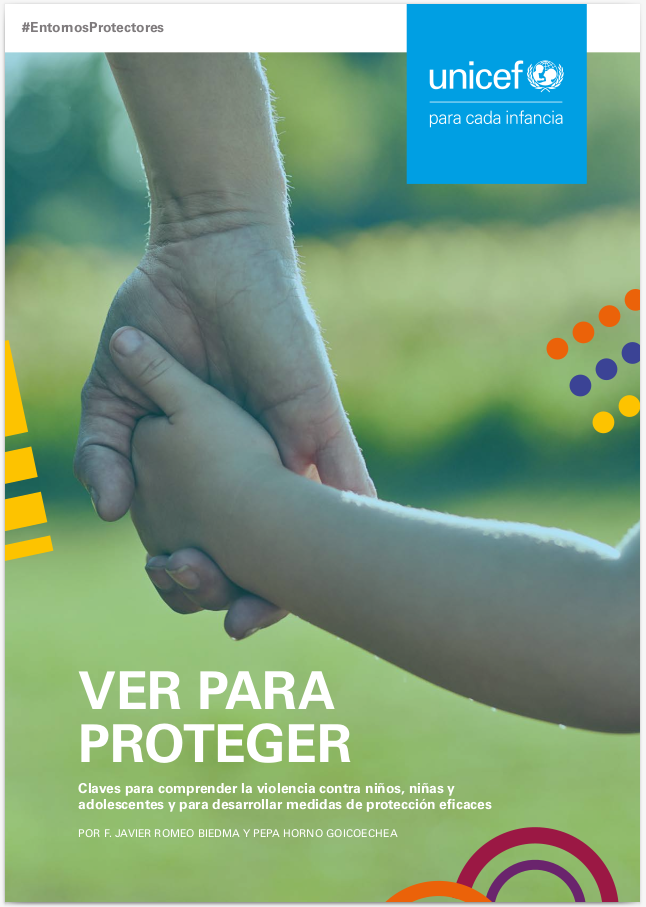 Last week the manual was officially presented see to protect. Keys to understanding violence against children, girls and adolescents and to develop effective protection measures, that we have elaborated my partner Pepa Horno and I from Spiral Consulting Children for UNICEF Spain. As usual with My publications, sector la manual entry see to protect on that blog and expand on some relevant aspects here.
Last week the manual was officially presented see to protect. Keys to understanding violence against children, girls and adolescents and to develop effective protection measures, that we have elaborated my partner Pepa Horno and I from Spiral Consulting Children for UNICEF Spain. As usual with My publications, sector la manual entry see to protect on that blog and expand on some relevant aspects here.
The manual has three elements that are significant to share here.
First, broadly systematizes the fundamental concepts to understand violence. Many people going through therapy need to understand what has happened to them and how, and although normally the accompaniment process is enough, sometimes they ask me for a reference to continue expanding. It's manual, although it is technical and is aimed at professionals who work with children, and adolescents, can also serve people with sufficient therapeutic work.
On the other hand, and expanding on that line, the manual is also useful for psychotherapists who want to update their knowledge and skills. With the activities that are proposed throughout each of the chapters we can expand our sensitivity and our ability to accompany processes that have to do with violence and trauma and with their healing.. The practical part is designed to cultivate awareness of our interventions.
By last, it is essential to remember the importance of the bodily dimension both in violence and its consequences (especially in trauma and dissociation) as in recovery. The entire manual has body aspects, and especially works on the feeling of well-being that it tries to build in the spaces that are Safe and Protective Environments.
The manual see to protect can be downloaded free of charge from the UNICEF Spain website.
I hope that is of interest, and I will love to know how you receive it.
Artículo “We accompany with the person that we are” within the initiative “Renewing from within”
15 September 2021.
Tags: Agenda actual, Interpersonal communication, Education, CI Spirals, Focusing, My Classifieds, For parents, Psychotherapy, Therapy, Experiences
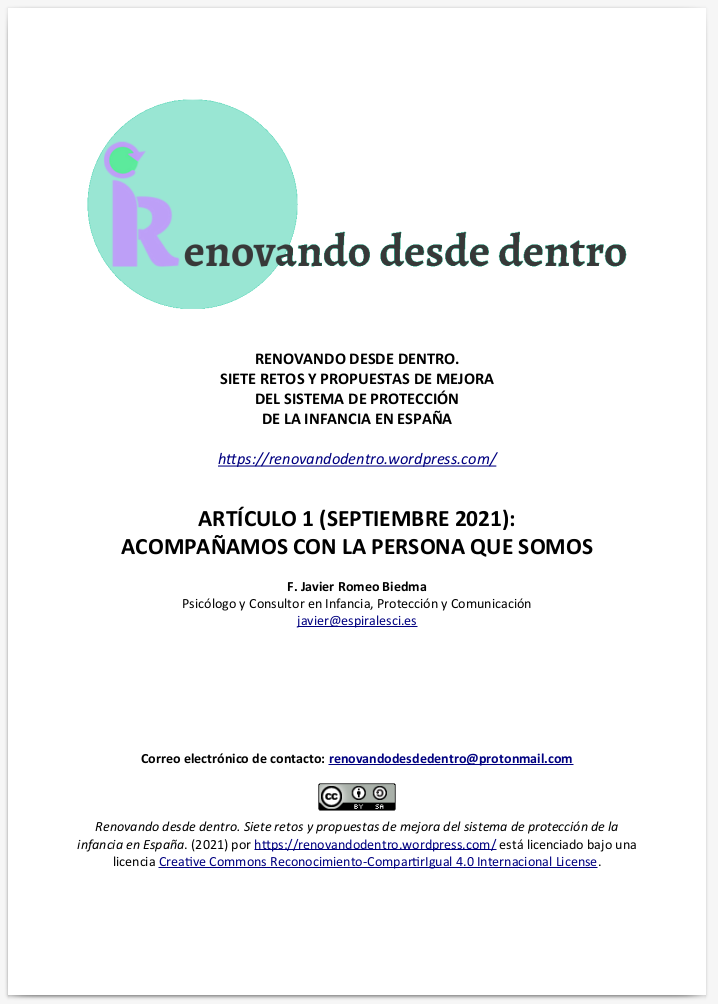 Part of my work as a psychologist and companion in personal and organizational processes consists of finding ways to communicate complex messages through metaphors and analogies.. In the initiative “Renewing from within”, that I already presented in this other post, we set out several challenges and proposals to improve the child protection system, girls and adolescents in Spain (And in the rest of the world).
Part of my work as a psychologist and companion in personal and organizational processes consists of finding ways to communicate complex messages through metaphors and analogies.. In the initiative “Renewing from within”, that I already presented in this other post, we set out several challenges and proposals to improve the child protection system, girls and adolescents in Spain (And in the rest of the world).
This month I have collaborated with the article “We accompany with the person that we are”, that uses analogies between the measures we are taking in the face of the pandemic and the aspects we need to take care of when accompanying children, girls and adolescents who have suffered a lot. It is a way of bringing awareness to our way of being and doing, both personally and professionally.
And you will see that, as usual, I insist on the importance of training in trauma and remember the value of Focusing, I find it a very useful tool on a day-to-day basis..
I would love to know what you think and how you live it.
Taller “Finding the felt sense with objects: a way to interact with the inner parts” at the International Online Conference on Focusing Guided Therapy the 23 October 2020
23 October 2020.
Tags: Agenda filed, Focusing community, Focusing, Focusing international, Training, Psychotherapy, Therapy
It is a joy for me to be able to facilitate a workshop on “Finding the felt sense with objects: a way to interact with the inner parts” in the International Online Conference on Focusing Guided Therapy (International Focusing-Oriented Therapy Conference) that is planned to take place between the 21 and 25 October 2020 (between 22 and 26 in Asia and Oceania).
It will be an experiential workshop on Focusing Guided Psychotherapy (Focusing-Oriented Psychotherapy/Therapy, FOT / FOP), one of the lines of work that I follow when I accompany in psychotherapy both in person and by videoconference.
“Working with the inner parts in therapy can be challenging in many ways. We can facilitate a better understanding of the interior parts by using objects (figures, pencils, clay). The process of choosing one or more objects can help generate the felt sense without the need to explain excessively. In this way, we can help each client (from childhood to adulthood) listen to every part inside, so that you can see the movement of life forward in them and to establish a better relationship with them. This is going to be a practical workshop, so it is advisable to bring a few small objects that can be used in the consultation (a dozen colored pencils will do).
Key contents:
1) Five key ideas for working with interior parts with children, girls, adolescents and adults.
2) An example of a process of seeking felt sense with objects.
3) A little experience of working with objects so that everyone can develop their personal style.”
Date: viernes 23 October 2020, 09:00-11:00 on New York time (15:00-17:00 in Madrid time) (find the schedule here).
Place: online.
Language: the workshop will be in English with simultaneous translation into Spanish.
More information and registration: website of the International Conference on Focusing Guided Therapy (the International Focusing-Oriented Therapy Conference).
[Original entry 7 October 2020, actualizada a 20 October 2020, date of the event].
Workshop “Felt-sensing with objects: a way to interacting with inner parts” at the FOT Conference October 23rd 2020
23 October 2020.
Tags: Agenda filed, Focusing community, Focusing, Focusing international, Training, In English, Psychotherapy, Therapy
I am very happy about being able to facilitate a workshop about “Felt-sensing with objects: a way to interacting with inner parts” at the online International Focusing-Oriented Therapy Conference that will take place online from October 21st. till the 25th. 2020 (October 22nd.-26th. in Asia and Australasia).
It will be an experiential workshop about Focusing-Oriented Psychotherapy.
“Working with inner parts in therapy can be challenging in many ways. Using objects (figurines, pencils, Plasticine) can allow for a better understanding of inner parts. The process of choosing one or more objects can foster felt-sensing without explaining in excess. In this way, we can help clients –children but also adults– to listen to each part, to see the life-forward drive in them and to establish a better relationship with them. This will be a practical workshop, so please bring some small objects that you can use in your therapy room (a dozen of colored pencils will be enough).
Takeaways:
1) Five key ideas for working with inner parts in therapy with children, adolescents and adults.
2) An example of a process of felt-sensing with objects.
3) A short experience of working with objects, to develop your personalized style.”
Date: Friday October 23rd 2020, 09:00-11:00 New York time (15:00-17:00 Madrid time) (your time here).
Place: online.
Language: the workshop will be in English with simultaneous translation into Spanish.
More information and registration: website of the International Focusing-Oriented Therapy Conference.
[Original post from October 7th 2020, updated on October 23rd 2020, day of the event].
Listen and be present in times of confinement, my experience on the phone at COP Madrid
13 July 2020.
Tags: Interpersonal communication, Psychotherapy, Therapy, Experiences
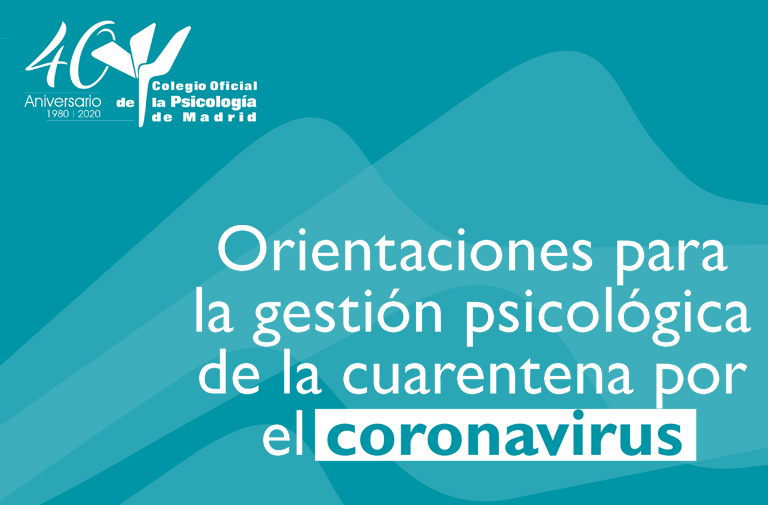 A few days ago I received the certificate as a volunteer from the telephone service of the Official College of Psychology of Madrid. In these moments of “new normal” It has been a reminder of the difficult moments of confinement, between March and May of this year 2020. And from the calm (provisional) actual, It seems like a good time to process what I have experienced. And I have four words to symbolize it: commitment, resistance, humility and conscience.
A few days ago I received the certificate as a volunteer from the telephone service of the Official College of Psychology of Madrid. In these moments of “new normal” It has been a reminder of the difficult moments of confinement, between March and May of this year 2020. And from the calm (provisional) actual, It seems like a good time to process what I have experienced. And I have four words to symbolize it: commitment, resistance, humility and conscience.
When the lockdown started my basic question was “How can I contribute?”. From Spirales Consultoría de Infancia we have received many requests that we have been able to attend to, but that will be the reason for another blog post. But, at the same time, there was another dimension, from volunteering, what did i want to offer. Between the many services and resources what did he offer Official College of Psychology of Madrid, Telephoning people who need it suited me very well. From there, I have felt honored to belong to this organization that has been close to the citizenry as far as its resources have allowed.. This for me has to do with psychology, apart from being my profession, also supposes a commitment personal towards the well-being of individuals and communities. We have seen the commitment of many people and many professional groups, and this has been ours: offer listening and support to those who need it.
The beginning of the telephone attention was intense for me. The calls weren't many, but long and complex. From mourning the death of people to serious mental health difficulties. And my admiration for the ability resistance of every person I cared for. I like to say “resilience”, that word that we like so much in psychology. But “resilience” it implies “to resist” and “remake”, and in a single phone call per person I only got to see the part of “to resist”. When I see the current relaxation in the face of sanitary measures, I remember each person that I attended, with your level of suffering, and I wonder how they will live it. Are they feeling the frustration that it was not done better at the time? Are they enjoying some rest and contact? My memory is with those people who have had such a bad time, and that they will have to find the strength to continue resisting and, hopefully, to reach resilience and rebuild.
All these experiences have awakened in me a lot humility. The coronavirus is generally being a call to conscience, that as human beings we consider how we are doing in the world and look for ways to improve. For me, as a psychologist, all these experiences are assuming a humility cure. There is so much suffering that I will not be able to attend, but whoever arrives, I arrive. There are people with so many difficulties in their mental health that I do not know how to accompany, and I have to continue training. And there are so many things to improve that sometimes I find it hopeless, but my commitment is to continue cultivating hope.
Y, once again, the experience has been for me a call to the consciousness. Faced with human suffering, it is necessary to be not only as a professional, but also as a person. Human contact, how much we have missed during confinement, it is a source of well-being (when it occurs in healthy relationships). The psychological care has been for me to be there present, with empathy and also with my vulnerability (but taking charge of what I live).
And all these experiences now bring me gratitude, both to COP Madrid, especially those who have led the process, as those who have had the courage to call and trust those who attended them. My appreciation to all those people for their courage.
And my best wishes for this new phase.
Manual “Accompanying the wounds of the soul. Trauma in childhood and adolescence”
12 November 2019.
Tags: Agenda actual, Education, CI Spirals, Eugene Gendlin, My Classifieds, Psychotherapy, Therapy, Trauma
As a psychologist I divide my professional time between clinical practice accompanying people in their therapeutic process in Madrid and advice and training organizations related to the protection of children, and adolescents from Espirales Children Consulting. That's why I am pleased to present the manual Accompanying the wounds of the soul. Trauma in childhood and adolescence, I have prepared for the Regional Office of SOS Children's Villages in Latin America and the Caribbean.
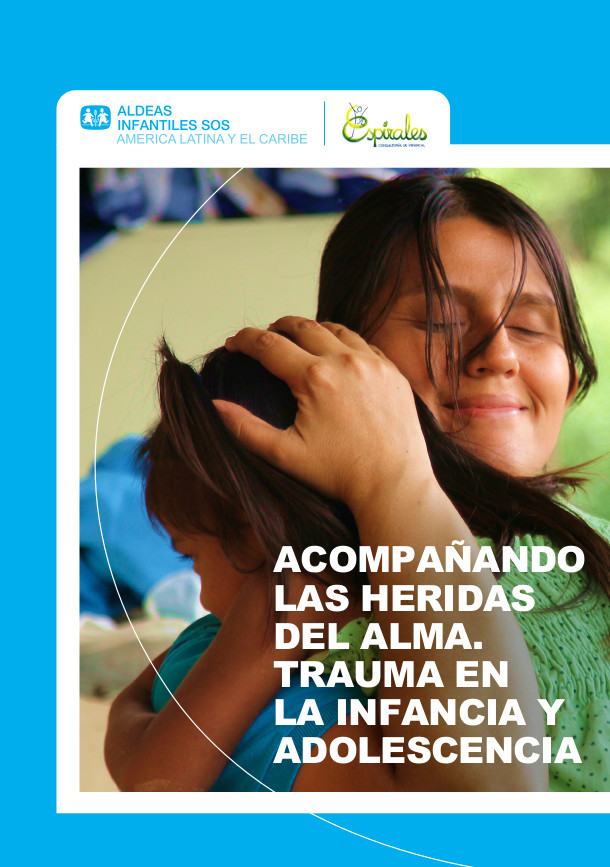 For more details on this publication, its contents and other publications related to child protection, you can read this blog entry Espirales CI.
For more details on this publication, its contents and other publications related to child protection, you can read this blog entry Espirales CI.
Two versions of the document:
- Accompanying the wounds of the soul. Trauma in childhood and adolescence, a single page (comfortable printer for printing and reading in mobile or tablet).
- Accompanying the wounds of the soul. Trauma in childhood and adolescence, a double page (to see on the big screen or for printing on printing).
In this blog I have only to add that the explanation of the trauma as a process is based on A process model (A Process Model) Eugene Gendlin de, and explanations of emotional blockages that have met the trainers and coordinators Focusing Ann Weiser Cornell and Barbara McGavin. You can find citations to specific sources on pages 16-20 of the text.
I hope the good results.
Taller “Focusing and experiential work with violence” Focusing on the Open National Meeting in Seville 14 October 2017
14 October 2017.
Tags: Agenda filed, Focusing community, Focusing, Focusing in Spain, Focusing international, Training, Psychotherapy, Therapy
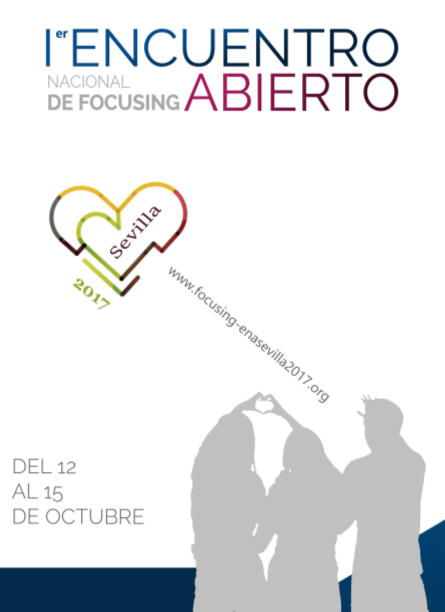 It is my pleasure to offer my workshop “Focusing and experiential work with violence” inside of the First National Open Meeting Focusing organized by the Focusing Spanish Institute and practically coordinated by the team Experiential space of Sevilla. As shown in the presentation, “The first National Meeting Focusing Open to be held in Seville, the days 12, 13, 14 and 15 October 2017, and we invite you to participate, It is a space to encourage meeting between people who use Focusing in a professional field and personal life, or who want to know. A space that allows us to disseminate new experiences and applications in different fields Focusing: therapy, groups, educación ,Health, personal growth, spirituality etc.. A space, ultimately enabling exchange experiences and reflections on the experiential paradigm and Focusing”.
It is my pleasure to offer my workshop “Focusing and experiential work with violence” inside of the First National Open Meeting Focusing organized by the Focusing Spanish Institute and practically coordinated by the team Experiential space of Sevilla. As shown in the presentation, “The first National Meeting Focusing Open to be held in Seville, the days 12, 13, 14 and 15 October 2017, and we invite you to participate, It is a space to encourage meeting between people who use Focusing in a professional field and personal life, or who want to know. A space that allows us to disseminate new experiences and applications in different fields Focusing: therapy, groups, educación ,Health, personal growth, spirituality etc.. A space, ultimately enabling exchange experiences and reflections on the experiential paradigm and Focusing”.
In therapeutic work, individual and group, in social work with different groups (especially children, adolescence and youth), we can see the effects of violence in their lives. This workshop's general objective is to work experientially the concept of violence in our lives as a first step to prevent, detect and intervene in situations of violence.
Date: sábado 14 October 2017, a las 16:30.
Place: Hotel NH Collection Sevilla
Avda. Diego Martinez Barrio, 8
41013 Sevilla
For more information and registration, Consult Open the website of the National Meeting Focusing in Seville 2017.
I hope that is of interest,
[Original entry 27 September 2017, actualizada a 14 October 2017, date of the workshop].
Learnings of the Fourth International Conference Focusing Oriented Therapy in New York 2017
26 July 2017.
Tags: Agenda filed, Focusing community, Eugene Gendlin, Focusing, Focusing international, Psychotherapy, Therapy
A few weeks ago I returned from the IV International Conference Focusing Oriented Therapy (The 2017 International Focusing-Oriented Therapy Conference) which it took place in Garrison, New York (U.S) of 21 to the 25 de junio de 2017.
It has been a very enriching experience, full of shared learning spaces and meetings professionally and personally, included a tribute to Gene Gendlin.
For me it was an opportunity to learn more about various approaches to psychotherapy Focusing Oriented applied to my personal practice and professional:
- I really enjoyed the workshop prior to the conference given by Laury Rappaport “Integrate artistic expression from an orientation Focusing your clinical practice” (“Integrating Focusing-Oriented Expressive Arts (FOAT®) into Your Clinical Practice”).

- I learned a lot from the study group led by Nancy morning Falls “'I am not my trauma!’ – Focusing Orientation therapy for children, girls and young people who have experienced trauma” (“‘I’m Not My Trauma!’ — FOT for Children and Youth Who Have Experienced Trauma”).

And then all have been shorter workshops (two or three every afternoon), spaces that have been exploring new prospects for the therapeutic use of Focusing in a shorter format, and all conversations and meetings at meals, breaks and closure activities each day.
Back with many ideas to further explore the use of Focusing in psychotherapy and various lines of work to investigate in my practice. We will comment later.
And I also bring the feeling of a community alive and growing Focusing, looking for new processes and new developments to continue “carrying life forward”.
I hope to continue to share everything I learned.
Taller “Focusing and body dimension of violence” within the day “Emotions and psychotherapy” in Madrid 15 March 2017
15 March 2017.
Tags: Agenda filed, Focusing, Focusing in Spain, Focusing en Madrid, Training, Psychotherapy, Therapy
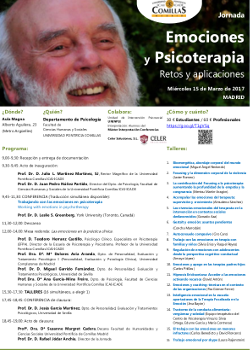 It is for me an honor to have been invited to give a workshop on “Focusing and body dimension of violence” inside of Working day “Emotions and psychotherapy: Challenges and Applications”, organized by the Universidad Pontificia Comillas de Madrid.
It is for me an honor to have been invited to give a workshop on “Focusing and body dimension of violence” inside of Working day “Emotions and psychotherapy: Challenges and Applications”, organized by the Universidad Pontificia Comillas de Madrid.
In psychotherapy practice we see many situations of violence, from the most subtle to the most intense, and especially its consequences. This workshop offers an experiential journey through experiential exercises based on Eugene Gendlin Focusing. This way we can get to identify violence from the body (also from the cognitive), an essential step to increase our effectiveness in preventing, detect and intervene in cases of violence (child abuse and its effects in adulthood, sexual abuse, gender violence…).
Date: Wednesday, 15 March 2017, of 15:30 a 17:30.
Place: Universidad Pontificia Comillas de Madrid – ICADE
C / Alberto Aguilera, 23
Madrid
More information and registration on the website of the Universidad Pontificia Comillas de Madrid.
Download the full program of the Day “Emotions and Psychotherapy: Challenges and Applications”.
[Original entry 27 February 2017, actualizada a 15 March 2017, Date event].
Manual “Focusing in clinical practice” de Ann Weiser Cornell (translated by F. Javier Romeo)
29 November 2016.
Tags: Agenda actual, Focusing, Focusing in Spain, Focusing international, My Classifieds, Psychotherapy, Therapy, Textos Focusing
It is a pleasure for me to share publishing Focusing in clinical practice. The essence of change, the last book Ann Weiser Cornell in Spanish, in this case translated by me.
In a carefully edited within the Psychology Library of Editorial Desclée, This book appears thanks to the joint work of many people, I thank you from here.
First, Ann Weiser Cornell He has been willing to publish the book (which first it appeared in the prestigious American publishing mental health W. W. Norton), and it has been in the translation every nuance, answering various questions and looking me the words tighter each of its concepts and expressions. He has contributed a warm prologue to the Spanish edition (which can be read in the promotional booklet), in which he says:
In this book I have tried to explain the Focusing simply but without losing the complexity that makes it so special. I tried to make this book very practical, so that the clinician can use immediately. (P. 18)
On the other hand, the urge Isabel Gascón, National Coordinator and my mentor Focusing Focusing, you have set the book, from coordinating with the publisher until complete review of the drafts and a presentation to the Spanish edition which it highlights the interest of this book in the Spanish-speaking world (also available in promotional booklet).
By last, It is appreciated the concern and care of the editorial team Desclée, who has worked for a clear and elegant book, in one of the most prestigious collections of psychology in Spain.
In future posts I will comment more aspects that I find this book useful. By the time I leave you with the index (which is extended here), I will comment on the various chapters in other blog entries:
- Introduction. A door opens.
- 1. The essence of change.
- 2. Prepare for the meeting: Entering Focusing sessions with clients.
- 3. Recognize and cultivate heartfelt feelings.
- 4. Help customers who felt sensations arise.
- 5. Cultivate the Self-en-customer presence: The essential environment for heartfelt feelings.
- 6. deepening: How to facilitate change sense.
- 7. When it costs us more to work with some difficulty customers.
- 8. Focusing en trauma, addictions and depression.
- 9. Focusing on integrating different therapeutic modalities.
- 10. Focusing therapist.
- Appendix.
For me it is a celebration that we can have this book so practical and yet profound, and I hope you enjoy reading it as much as I have enjoyed translating.
Note:
If you want to try Focusing session, or start therapy, I have my psychology consultation in Madrid, where I accompany children, adolescents and adults and will be happy to welcome you.
